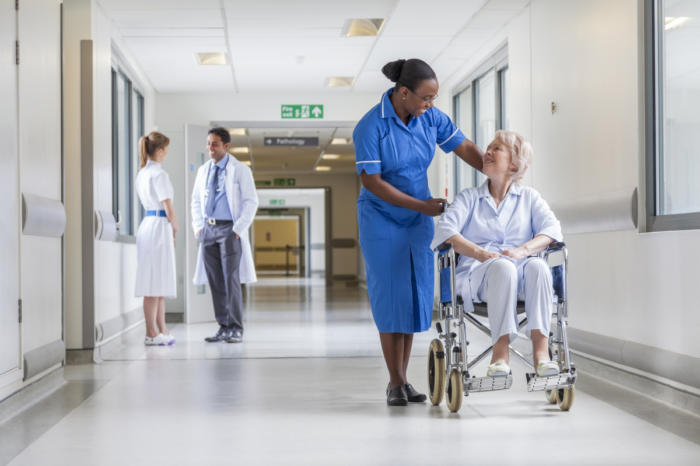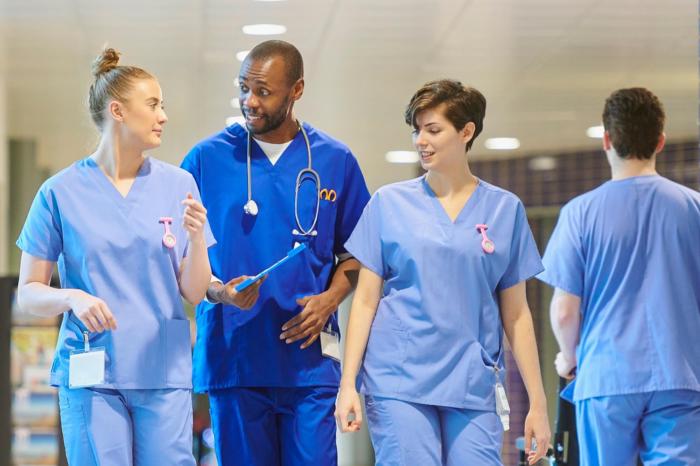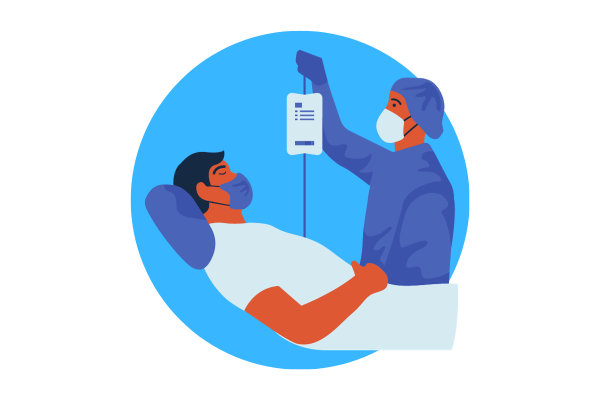In 2017, the Joint Advisory Group on Gastrointestinal Endoscopy (JAG) reviewed the existing endoscopy nurse training and competency frameworks. A universal process was created whereby the endoscopy workforce can be recognised for the knowledge, skills and practical expertise they hold. Several stakeholder meetings and review days were held in 2017, and the need for revision of existing programmes and standardisation of processes and e-portfolio content was agreed.
The new programme and e-portfolio in the JAG Endoscopy Training System (JETS), called JETS Workforce, contains endoscopy-specific competency frameworks, guidelines for direct observation of procedural skills (DOPS), witness statements and reflective continued professional development statements. These combine to create a platform to which members of the endoscopy workforce may submit evidence of their own practices. Use of JETS Workforce current and new endoscopy staff irrespective of grade and title is envisaged. It could also be used to support the Nursing and Midwifery Council revalidation process. JETS Workforce has been developed by the same company that developed JETS, via which trainee endoscopists gain accreditation.
The JETS Workforce programme will replace the current Gastrointestinal Endoscopy for Nurses programme, although JAG estimates that there will be a 6-month period when both e-portfolios will be available to users. Trainees will be expected to use this period to download their existing evidence and document past activity. As the two programmes are not like-for-like, transfer of work will not be possible. It will be a trainee's responsibility to load any appropriate past evidence on to the new system.

Competency framework
Competencies
Rollout of JETS Workforce will be in done in five stages: foundation, decontamination, advanced, management and leadership and assessing clinical practice. The contents of the foundation and decontamination phases have been reviewed, refined and finalised, with agreed competencies and supporting documents loaded into the e-portfolio.
The foundation and decontamination competency frameworks are as follows:
- Professional values and interpersonal effectiveness
- Communication and patient assessment
- Upper gastrointestinal endoscopy (or oesophagogastro duodenoscopy)
- Lower gastrointestinal endoscopy (colonoscopy and flexible sigmoidoscopy)
- Infection prevention
- Decontamination – flexible endoscope manual cleaning
- Decontamination – flexible endoscope – use of automated endoscope re-processors
- Decontamination – storage of flexible endoscopes and accessories
- Preparation of the procedure room
- Assisting with diagnostic upper GI gastrointestinal endoscopy
- Assisting with diagnostic and simple polypectomy (<1 cm) lower gastrointestinal endoscopy (colonoscopy and flexible sigmoidoscopy)
- Operation of diathermy
- Nurse preassessment of patients undergoing diagnostic gastroscopy, flexible sigmoidoscopy and colonoscopy with or without biopsy or polypectomy
- Nurse confirmation of written consent for diagnostic gastroscopy, flexible sigmoidoscopy and colonoscopy with or without biopsy or polypectomy
Assessments
For each skill tested within each competence, guidance is given regarding the most appropriate evidence to support sign off, and might be a written statement, a reflective account, a completed DOPS form, a manufacturer DOPS form or an observation of products form.
Witness statements and reflective continued professional development statements have been developed to support the gathering of evidence, along with the following DOPS forms:
- Assisting with argon plasma coagulation
- Assisting with simple biopsy
- Assisting with simple polypectomy (<1 cm)
- Care and observation of patients undergoing diagnostic endoscopy procedures
- Fujifilm DOPS version 19.10.16
- Manual cleaning DOPS OKM version 05.10.16 HG
- Manual cleaning of an endoscope
- PENTAX Medical DOPS version 22.11.16
- Preparation of the procedure room
- Sending or receiving scopes for repair or service
- Setting up and assisting with diathermy
- Storage of endoscopes
- Use of automated endoscope re-processors
Each DOPS form contains practical observable skills linked to the task and endoscopic non-technical skills, which allows a holistic assessment of competency to be carried out.
The process of completion of a competency will be via a four-stage process
- Self-assessment
- Baseline assessment by a mentor
- Formative assessment
- Summative assessment
The scoring of the competency will be based on the level of supervision required:
- Level 1: maximum supervision
- Level 2: significant supervision
- Level 3: minimal supervision
- Level 4: competent for independent practice
- Level 5: can teach and assess others
JETS Workforce is linked to the Global Rating Scale domains and will in the future be linked to achievement of these, particularly the Workforce domain.

Pilot
Following an implementation meeting held on 3 July, 2018, it was decided that JETS Workforce and the decontamination competency frameworks would be loaded onto the e-portfolio and piloted by several services. The pilot aimed to ensure three factors:
- The e-Portfolio is fit for purpose and effectively supports training and development
- The competencies support training in the real world
- The evidence can be easily added and is appropriate to demonstrate competence
Seventeen endoscopy services (from English, Welsh and Scottish acute sectors and the independent sector) signed up to pilot the new programme. 157 users were set up on the system and piloted the platform from November 12, 2018, until March 1, 2019, after which expansion to all services was planned.
ENDO1 training course
A foundation-level course, ENDO1, has been designed to help support trainees to complete the foundation and decontamination levels of the JETS Workforce competency framework. The course is anticipated to cover 9 modules, delivered by a combination of approximately 3 hours’ worth of e-learning. These will cover the following five topics:
- Pre-assessment of patients
- Infection control
- Role of assistant and diathermy
- Decontamination
- Improving quality and safety in endoscopy
A further 0.5 day face-to-face training course will cover:
- Professional issues in endoscopy
- Consent
- Care of patients undergoing endoscopy
- JETS Workforce e-portfolio
A JETS Workforce faculty training day took place at the Royal College of Physicians in February, 2019, aimed at developing a core faculty to deliver the courses. At least two faculty members will be required at each course. Members of services who had shown interest in delivering the ENDO1 were invited to attend, and a team of 25 faculty members was formed. The ENDO1 courses are initially available in Cardiff, Derby, Durham, Liverpool, London, Norwich, Peterborough, Torbay and Wrexham, from May, 2019.
Continuing development
Following rollout, the JETS Workforce team will concentrate on reviewing and finalising the other three stages of the competency framework (advanced, management and leadership, and assessing clinical practice). The agreed competencies and supporting documents will subsequently be loaded onto the e-portfolio. A further two training courses, ENDO2 and ENDO3, will be developed for these sections.
Further information
If you have any queries about the content mentioned in this publication or if you would like further information, please do not hesitate to contact the JAG office team at [email protected]
Author biography
Dr Phedra Dodds
I have practised as an Advanced Nurse Practitioner and Consultant Nurse in Gastroenterology and Endoscopy for the last 16 years. I am a JAG accredited Endoscopist and I perform colonoscopy and polypectomy. My role also includes care of inflammatory bowel disease patients, general gastroenterology outpatient clinics and gastro-intestinal physiology testing.
My academic areas of interest include the philosophy of advanced nursing practice, patient involvement in care and the operation of services at the primary secondary care interface. I have completed a PhD in Medicine at Swansea University researching, via a randomised controlled trial, the use of educationally enhanced individualised patient information reports for inflammatory bowel disease (ELIJAH). The research formed the basis of my 2012 RCN Wales Nurse of the Year award for research and innovation.
I work for JAG leading the development of the JETS Workforce programme, developing a U.K. wide e-portfolio competency programme and training package to acknowledge the competence and skill of those who assist endoscopy.
